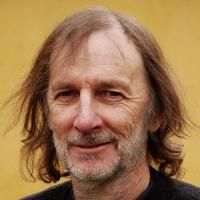
Bruce Campbell
Dr Bruce Campbell has a PhD in Ecology from Utrecht, but has increasingly moved into inter- disciplinary work, championing new approaches to applied research on natural resource management. He is Director of the CGIAR Research Program on Climate Change, Agriculture and Food Security (CCAFS), and a staff member of the International Centre for Tropical Agriculture (CIAT). He operates out of the CCAFS office at the University of Copenhagen, Denmark. He was previously based in Zimbabwe, Indonesia and Australia, where he has worked in agricultural and forestry research for development. He has published over 120 peer-reviewed articles and more than a dozen books.
In 2009, Bruce became the Director of the newly-established CGIAR Challenge Program on climate change, based at the University of Copenhagen, and in 2011 the Director of its successor, the CGIAR Research Program on Climate Change, Agriculture and Food Security (CCAFS).
As Program Director, Bruce Campbell is responsible for intellectual leadership and representation, sign off on deliverables, and has decision-making authority with respect to day-to-day operations of CCAFS. The Program Director gives regular updates to the Lead Center management team, and to the Chair of the Independent Science Panel. On behalf of the Program Management Committee, the Program Director prepares the annual report that goes to the ISP and Lead Center (for onward submission to the Consortium Board).
For two decades prior to joining CCAFS, he focused on social-ecological systems in southern Africa, covering a spectrum of production systems (forestry, livestock, dryland and irrigated cropping), from small-scale (e.g. soil fertility management) to large-scale (e.g. deforestation analyses), and from biophysical and social science angles. In this time he served as the inaugural Director of the Institute of Environmental Studies, University of Zimbabwe.
For ten years, Bruce was the Director of the Forests and Livelihoods Program at the Centre for International Forestry Research (CIFOR) in Indonesia. This involved a team of 50 scientists based in eleven locations in Asia, Latin America and Africa. The team included anthropologists, political scientists, sociologists, economists, ecologists, botanists, foresters and geographers. This work centered on the link between poverty alleviation and forest goods and services, with topics such as 'payments for environmental services (PES)', 'reduced emissions from deforestation and degradation (REDD)', and 'integrated conservation and development (ICDP)' featuring prominently.
He also had a spell in Northern Australia, where much of the work involved Aboriginal natural resource management. He was the inaugural Director of the School for Environmental Studies at Charles Darwin University in Darwin.
Bruce serves on several editorial boards, and is a scientific committee member of PECS, the ICSU Programme on Ecosystem Change and Society.